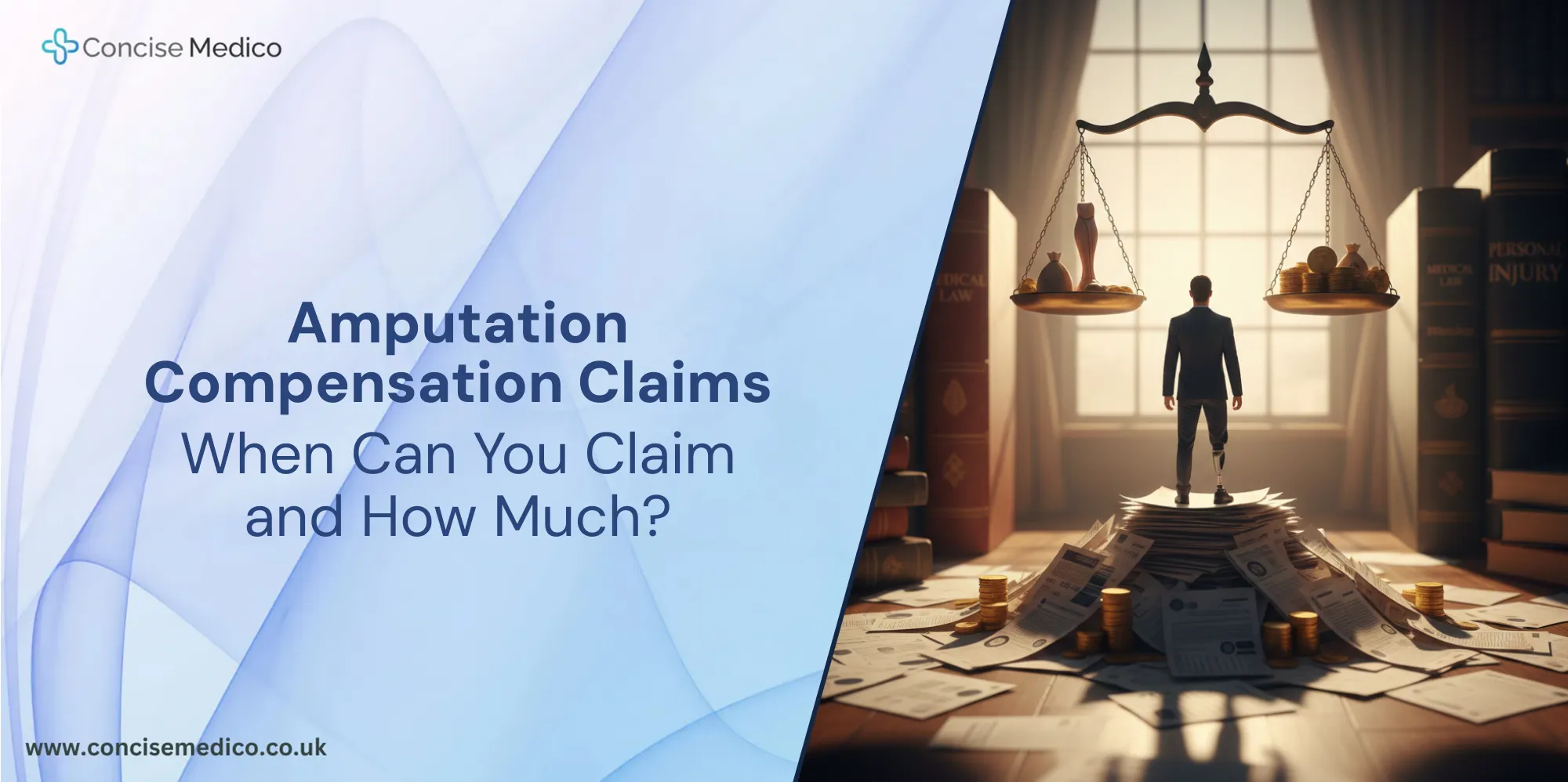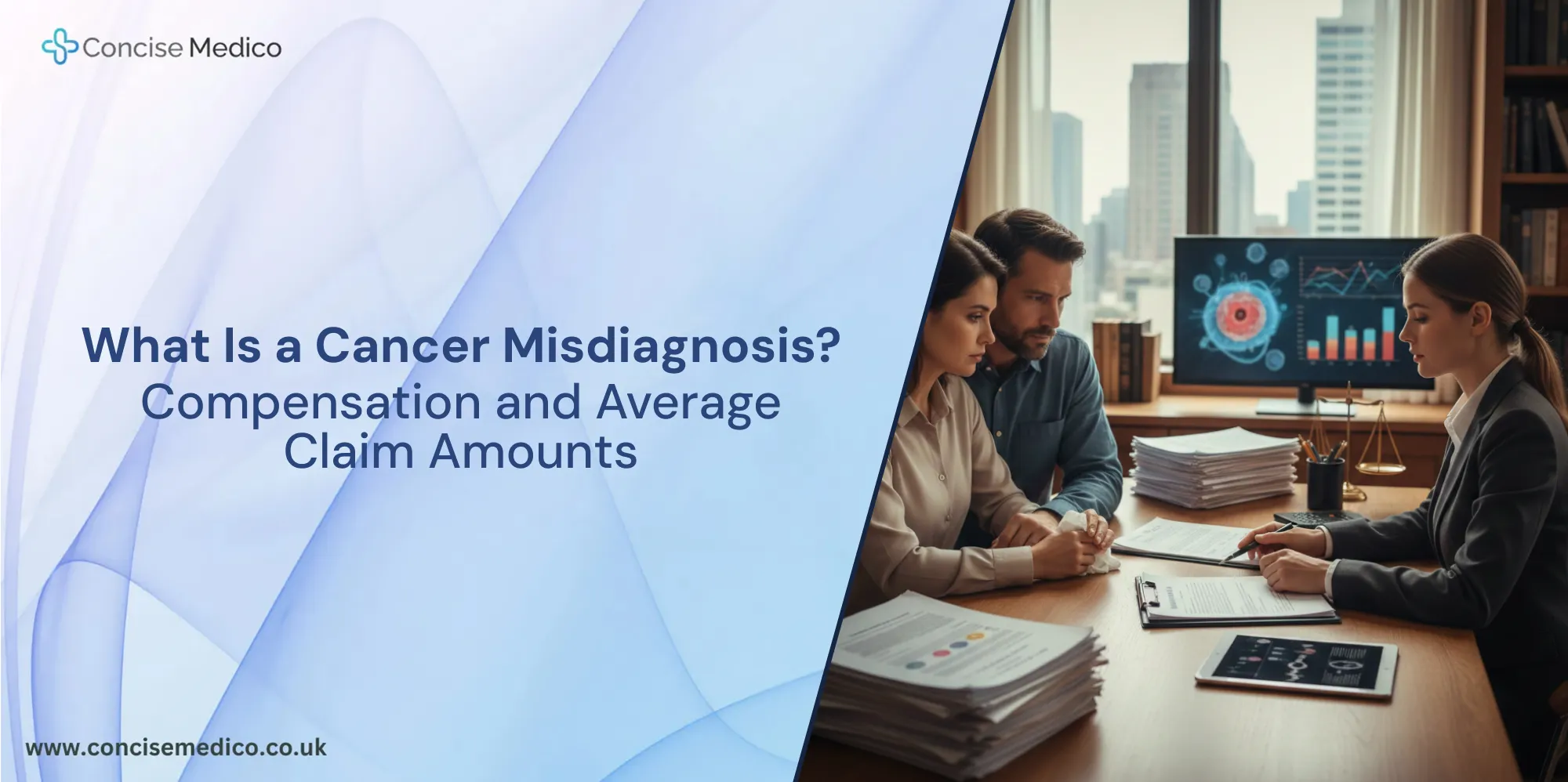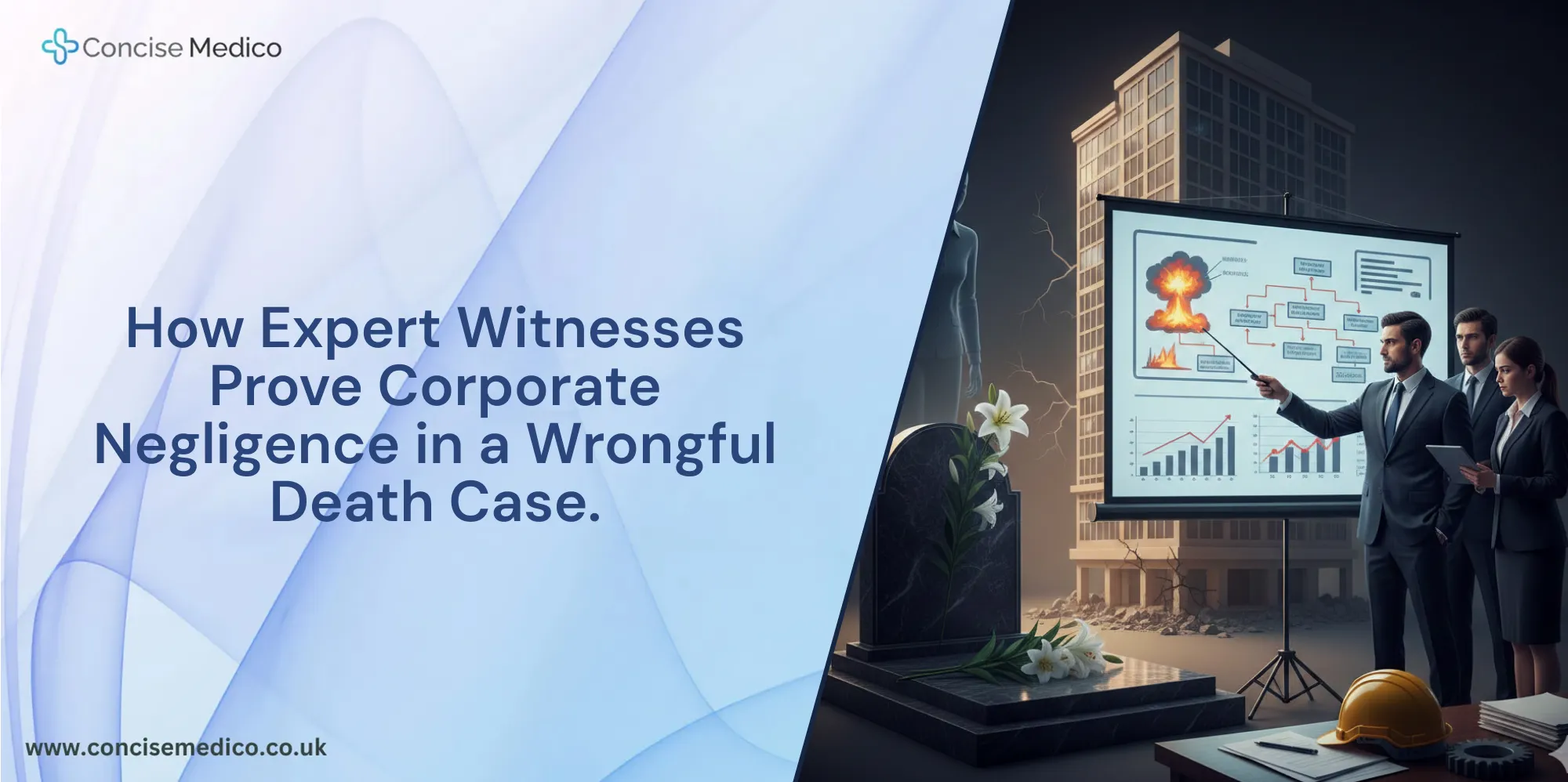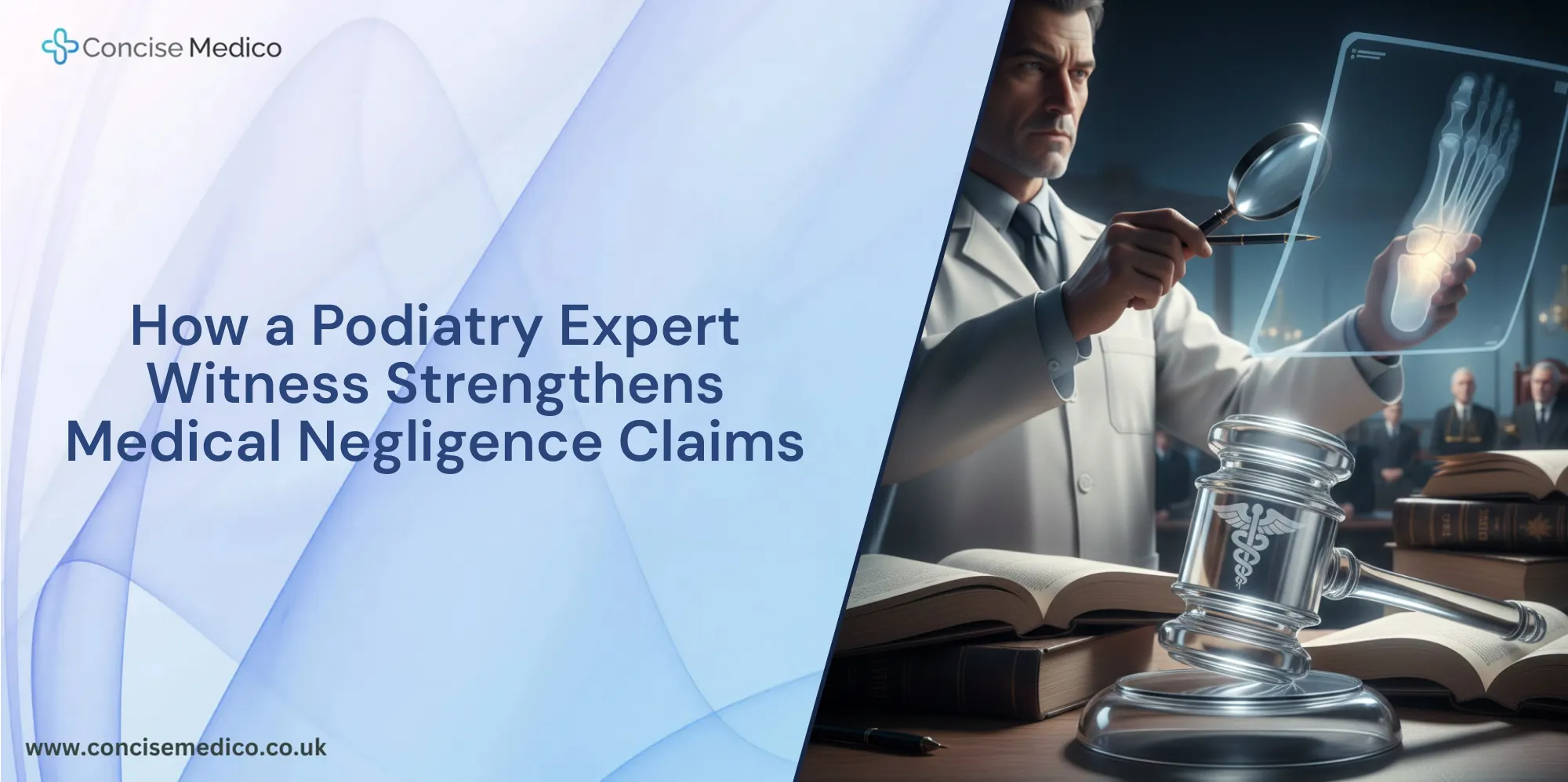In our day to day life, we come across many cases where a person has suffered some sort of injuries. These injuries can harm you in many ways but the bright side is that you can always claim it. However, such claims must be backed by some proof. You have to prove your injury through a report. If you intend to present that report in the court, it’s called a medico-legal or expert witness report.
Medico-Legal Report
Experts from different fields prepare the reports and provide testimony if needed. These fields are:
- Psychology
- Psychiatry
- Neurology
- Pain Management
According to a report by the Association of Personal Injury Lawyers (APIL), there are approximately 800,000 personal injury claims in the UK annually, many of which require medico-legal reports.
Get some Legal Insights on Mental Health and Criminal Responsibility in the UK.
Which Cases Need A Medico Legal Witness
Not all court cases need a medico-legal witness. They are mostly hired where evidence also needs to be supported by the opinion of an expert in the relevant field.Such cases are, when a client suffers from:
- Personal injury
- Psychological Injury
- Medical malpractice
“The evidence of an expert witness may be in the form of a report like a Post-Mortem Report (PMR) or Medico-Legal Report (MLR) which may be accepted by courts without calling him to testify.”
-UCP Perera
How Is The Report Structured?
An expert witness report is a well structured document. It needs to be in the right order as it is used to evaluate a client’s claim. It usually contains:
1-Client/claimant details
Firstly, the basic details of the client are mentioned. These are normally:
- Name of the client
- History of patient if they had any such injuries before
- Date of incident when it took place
2-Findings of case
After that, the report highlights the whereabouts of the incident and the type of injuries incurred. This part includes:
- Incident details including the time and place of incident
- Injury details showing its severity
- Details about treatment process
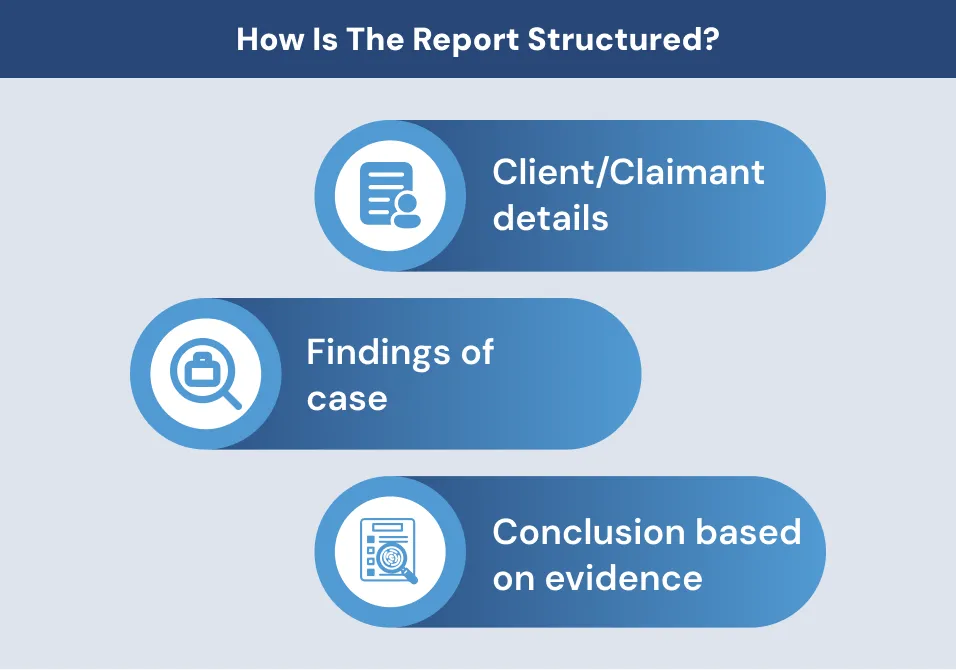
3-Conclusion based on evidence
After going through the evidence, the expert witness report is finalized with the input of the expert. Here they explain:
- Further treatment suggestion such as more check ups
- Duration of treatment
- Verification of injuries and the progress.
Take a look at our guide on How to Obtain Medical Reports for CICA Claim?
A medico-legal expert can only validate his claims using a medico-legal report. The report must adhere to Civil Procedure Rules (CPR Part 35).
What is a CPR Complaint Report?
Part 35 of the Civil Procedure Rules (CPR) is about the rules of using expert evidence in civil cases. It is there to regulate the way experts are instructed, how they write their reports, and how they can be enquired about it.
Why Should the Expert Witness Report Be CPR Compliant?
CPR 35 compliant reports ensure that the evidence given in court is credible. CPR compliant reports have now become a must-have requirement by the Civil Procedure Rules. So, your expert witness report must adhere to the standards outlined in the CPR compliant reports.
Sometimes, experts may need to attend the court hearing to provide proof and answer questions from the court or other parties. A summary of their qualifications and experience must also be provided in the report.
How to Get CPR Compliant Reports?
To get a compliant expert witness report, you will need the service of an expert witness who has the following factors to provide an opinion on the case:
- Specialist knowledge of their field
- Trainings in legal framework and court skills
- Relevant experience
Challenges in Medico Legal Reporting
The major challenge faced when making medico-legal reports is False Positive Reporting.
What Are False-Positive Reports?
When a test wrongly indicates a person’s condition, it is said to be False-positive in the medico-legal industry. Such an expert witness report can have serious effects in civil and criminal cases. They can lead to wrongful judgments.
Causes of False-Positive Reports
False-positive reports can have several causes. It could be because of:
-
Technological limits
Obsolete technology or usage of flawed tools may cause false readings. For example, certain scans if being done by old machines may not provide the required details that could be crucial for the decision.
-
Human error
At times, it could be simply a human mistake. Such as, mislabeling or misreading etc. Such human errors may result in wrong details that can affect your case.
-
Flawed methods
Using invalid tools and non-standard processes ends up in flawed readings. This can lead to wrong results of the report and so the wrong decision by court.
-
Poor training
A professional training is what makes them an expert. Expert witnesses who have poor training may misinterpret data which can lead to false results.
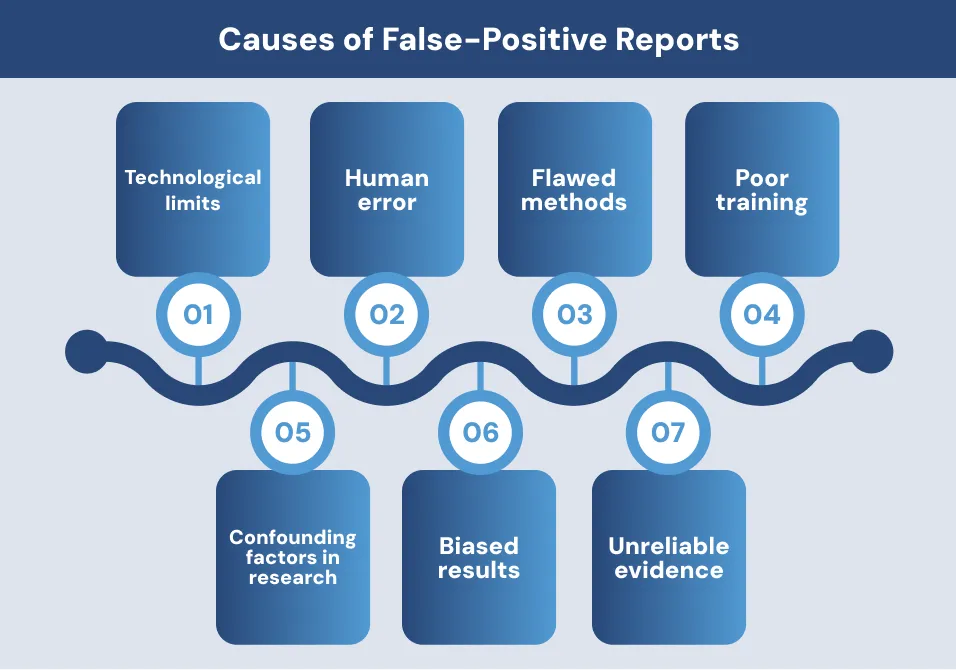
-
Confounding factors in research
While conducting research there are certain factors which are out of our control. These are other variables which may skew test results, this can clearly affect the findings of the research.
-
Biased results
Different ideas from all the stakeholders involved, can also influence your report. The report should be written objectively so that the findings are accurate.
-
Unreliable evidence
Weak evidence which is not backed by science should not be relied upon. Such evidence has no strong base and these may distort the end results.
We must find and fix these causes to reduce false-positive reports.
Ethical Standards of an Expert Witness Report
We should apply some ethical standards to an expert witness report. This may reduce false-positive reports. Some of these include:
- Strict quality control procedures
- Sticking to scientific standards and protocols
- Ongoing training and education for experts
- Fair verification of findings
- The usage of latest technologies
Case of Alfie Evans (2018)
It was a case of dispute over life support for terminally ill toddler Alfie Evans. There were conflicting expert medical opinions.Many expert witnesses who were neurologists and radiologists testified on brain injury extent and prognosis. The court then relied on their expert medico‑legal opinions of MRI imaging and the consensus that they had to withdraw life-sustaining treatment. The ruling turned out to be that it was not in the child’s best interests.
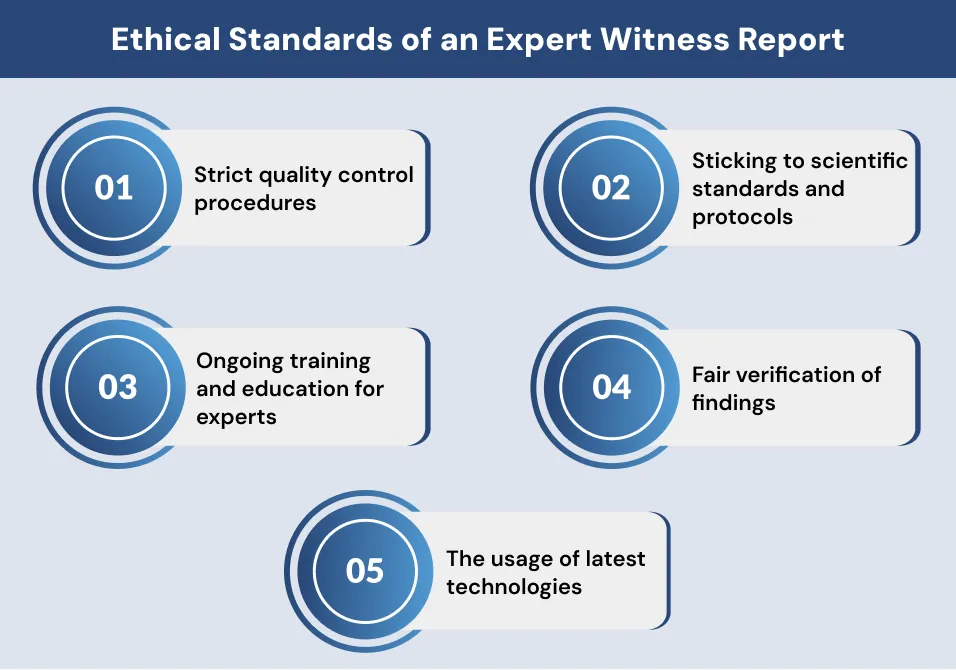
Choosing the Right Expert
Medico-legal reporting is crucial to ensure the delivery of justice. At Concise Medico, we ensure that our expert witness report is 100% CPR compliant, which is key to winning legal cases. We have the UK’s largest expert witness directory, offering a turnaround time of less than 48 hours.
Contact our team with the most competent expert witness. They will guide you through the process. Getting to know the right expert witness for your case and filing a claim can be a lengthy process. For your ease, we offer a holistic service that covers all the steps.
FAQs
In our day to day life, we come across many cases where a person has suffered some sort of injuries. These injuries can harm you in many ways but the bright side is that you can always claim it. However, such claims must be backed by some proof. You have to prove your injury through a report. If you intend to present that report in the court, it’s called a medico-legal or expert witness report.
Medico-Legal Report
Experts from different fields prepare the reports and provide testimony if needed. These fields are:
- Psychology
- Psychiatry
- Neurology
- Pain Management
According to a report by the Association of Personal Injury Lawyers (APIL), there are approximately 800,000 personal injury claims in the UK annually, many of which require medico-legal reports.
Get some Legal Insights on Mental Health and Criminal Responsibility in the UK.
Which Cases Need A Medico Legal Witness
Not all court cases need a medico-legal witness. They are mostly hired where evidence also needs to be supported by the opinion of an expert in the relevant field.Such cases are, when a client suffers from:
- Personal injury
- Psychological Injury
- Medical malpractice
“The evidence of an expert witness may be in the form of a report like a Post-Mortem Report (PMR) or Medico-Legal Report (MLR) which may be accepted by courts without calling him to testify.”
-UCP Perera
How Is The Report Structured?
An expert witness report is a well structured document. It needs to be in the right order as it is used to evaluate a client’s claim. It usually contains:
1-Client/claimant details
Firstly, the basic details of the client are mentioned. These are normally:
- Name of the client
- History of patient if they had any such injuries before
- Date of incident when it took place
2-Findings of case
After that, the report highlights the whereabouts of the incident and the type of injuries incurred. This part includes:
- Incident details including the time and place of incident
- Injury details showing its severity
- Details about treatment process

3-Conclusion based on evidence
After going through the evidence, the expert witness report is finalized with the input of the expert. Here they explain:
- Further treatment suggestion such as more check ups
- Duration of treatment
- Verification of injuries and the progress.
Take a look at our guide on How to Obtain Medical Reports for CICA Claim?
A medico-legal expert can only validate his claims using a medico-legal report. The report must adhere to Civil Procedure Rules (CPR Part 35).
What is a CPR Complaint Report?
Part 35 of the Civil Procedure Rules (CPR) is about the rules of using expert evidence in civil cases. It is there to regulate the way experts are instructed, how they write their reports, and how they can be enquired about it.
Why Should the Expert Witness Report Be CPR Compliant?
CPR 35 compliant reports ensure that the evidence given in court is credible. CPR compliant reports have now become a must-have requirement by the Civil Procedure Rules. So, your expert witness report must adhere to the standards outlined in the CPR compliant reports.
Sometimes, experts may need to attend the court hearing to provide proof and answer questions from the court or other parties. A summary of their qualifications and experience must also be provided in the report.
How to Get CPR Compliant Reports?
To get a compliant expert witness report, you will need the service of an expert witness who has the following factors to provide an opinion on the case:
- Specialist knowledge of their field
- Trainings in legal framework and court skills
- Relevant experience
Challenges in Medico Legal Reporting
The major challenge faced when making medico-legal reports is False Positive Reporting.
What Are False-Positive Reports?
When a test wrongly indicates a person’s condition, it is said to be False-positive in the medico-legal industry. Such an expert witness report can have serious effects in civil and criminal cases. They can lead to wrongful judgments.
Causes of False-Positive Reports
False-positive reports can have several causes. It could be because of:
-
Technological limits
Obsolete technology or usage of flawed tools may cause false readings. For example, certain scans if being done by old machines may not provide the required details that could be crucial for the decision.
-
Human error
At times, it could be simply a human mistake. Such as, mislabeling or misreading etc. Such human errors may result in wrong details that can affect your case.
-
Flawed methods
Using invalid tools and non-standard processes ends up in flawed readings. This can lead to wrong results of the report and so the wrong decision by court.
-
Poor training
A professional training is what makes them an expert. Expert witnesses who have poor training may misinterpret data which can lead to false results.

-
Confounding factors in research
While conducting research there are certain factors which are out of our control. These are other variables which may skew test results, this can clearly affect the findings of the research.
-
Biased results
Different ideas from all the stakeholders involved, can also influence your report. The report should be written objectively so that the findings are accurate.
-
Unreliable evidence
Weak evidence which is not backed by science should not be relied upon. Such evidence has no strong base and these may distort the end results.
We must find and fix these causes to reduce false-positive reports.
Ethical Standards of an Expert Witness Report
We should apply some ethical standards to an expert witness report. This may reduce false-positive reports. Some of these include:
- Strict quality control procedures
- Sticking to scientific standards and protocols
- Ongoing training and education for experts
- Fair verification of findings
- The usage of latest technologies
Case of Alfie Evans (2018)
It was a case of dispute over life support for terminally ill toddler Alfie Evans. There were conflicting expert medical opinions.Many expert witnesses who were neurologists and radiologists testified on brain injury extent and prognosis. The court then relied on their expert medico‑legal opinions of MRI imaging and the consensus that they had to withdraw life-sustaining treatment. The ruling turned out to be that it was not in the child’s best interests.

Choosing the Right Expert
Medico-legal reporting is crucial to ensure the delivery of justice. At Concise Medico, we ensure that our expert witness report is 100% CPR compliant, which is key to winning legal cases. We have the UK’s largest expert witness directory, offering a turnaround time of less than 48 hours.
Contact our team with the most competent expert witness. They will guide you through the process. Getting to know the right expert witness for your case and filing a claim can be a lengthy process. For your ease, we offer a holistic service that covers all the steps.
